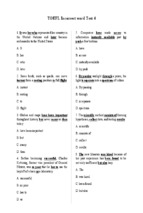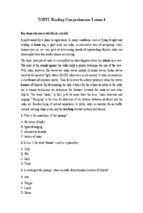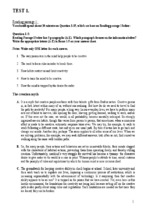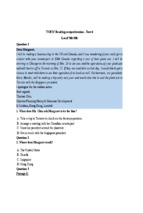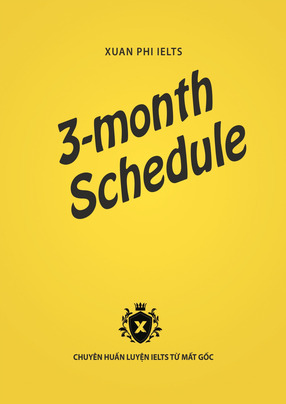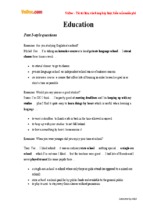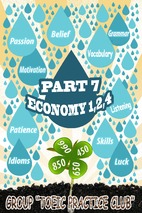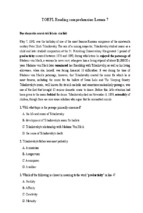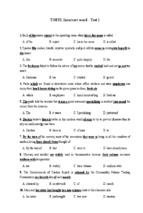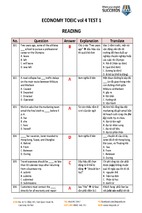THE
Success
Principles™
HOW TO GET FROM WHERE YOU ARE TO WHERE YOU WANT TO BE
Jack Canfield
Cocreator of the
Chicken Soup for the Soul® Series
WITH
Janet Switzer
Dedication
This book is dedicated to all those courageous men and women who have ever dared to step out of
the dominant culture of resignation and mediocrity and endeavor to create the life of their dreams. I
honor and salute you!
Epigraph
Life is like a combination lock; your job is to find the right numbers, in the right order, so you can
have anything you want.
BRIAN TRACY
If we did all the things we are capable of doing, we would literally astound ourselves.
THOMAS A. EDISON
Contents
Title Page
Dedication
Epigraph
Introduction
I. The Fundamentals of Success
1. Take 100% Responsibility for Your Life
2. Be Clear Why You’re Here
3. Decide What You Want
4. Believe It’s Possible
5. Believe in Yourself
6. Become an Inverse Paranoid
7. Unleash the Power of Goal-Setting
8. Chunk It Down
9. Success Leaves Clues
10. Release the Brakes
11. See What You Want, Get What You See
12. Act as If
13. Take Action
14. Just Lean into It
15. Experience Your Fear and Take Action Anyway
16. Be Willing to Pay the Price
17. Ask! Ask! Ask!
18. Reject Rejection
19. Use Feedback to Your Advantage
20. Commit to Constant and Never-Ending Improvement
21. Keep Score for Success
22. Practice Persistence
23. Practice the Rule of 5
24. Exceed Expectations
II. Transform Yourself for Success
25. Drop Out of the “Ain’t It Awful” Club…and Surround Yourself with Successful People
26. Acknowledge Your Positive Past
27. Keep Your Eye on the Prize
28. Clean Up Your Messes and Your Incompletes
29. Complete the Past to Embrace the Future
30. Face What Isn’t Working
31. Embrace Change
32. Transform Your Inner Critic into an Inner Coach
33. Transcend Your Limiting Beliefs
34. Develop Four New Success Habits a Year
35. 99% Is a Bitch; 100% Is a Breeze
36. Learn More to Earn More
37. Stay Motivated with the Masters
38. Fuel Your Success with Passion and Enthusiasm
III. Build Your Success Team
39. Stay Focused on Your Core Genius
40. Redefine Time
41. Build a Powerful Support Team and Delegate to Them
42. Just Say No!
43. Say No to the Good So That You Can Say Yes to the Great
44. Find a Wing to Climb Under
45. Hire a Personal Coach
46. Mastermind Your Way to Success
47. Inquire Within
IV. Create Successful Relationships
48. Be Hear Now
49. Have a Heart Talk
50. Tell the Truth Faster
51. Speak with Impeccability
52. When in Doubt, Check It Out
53. Practice Uncommon Appreciation
54. Keep Your Agreements
55. Be a Class Act
V. Success and Money
56. Develop a Positive Money Consciousness
57. You Get What You Focus On
58. Pay Yourself First
59. Master the Spending Game
60. To Spend More, First Make More
61. Give More to Get More
62. Find a Way to Serve
VI. Success Starts Now
63. Start Now!…Just Do It!
64. Empower Yourself by Empowering Others
The Success Principles Free Success Tools™
The Success Principles Annual Success Challenge™
The Success Principles Free Success Strategies Course™
Bring the Power of Change to Your Organization: The Success Principles™ Workshop
Suggested Reading and Additional Resources for Success
About the Authors
Permissions
Searchable Terms
Acknowledgments
Praise
Credits
Copyright
About the Publisher
Footnotes
Introduction
If a man for whatever reason has the opportunity to lead an extraordinary life, he has no right to
keep it to himself.
JACQUES-YVES COUSTEAU
Legendary underwater explorer and filmmaker
If a man writes a book, let him set down only what he knows.
I have guesses enough of my own.
JOHANN WOLFGANG VON GOETHE
German poet, novelist, playwright, and philosopher
This is not a book of good ideas. This is a book of timeless principles used by successful men and
women throughout history. I have studied these success principles for over 30 years and have applied
them to my own life. The phenomenal level of success that I now enjoy is the result of applying these
principles day in and day out since I began to learn them in 1968.
My success includes being the author and editor of over 60 best-selling books with over 80 million
copies in print in 39 languages around the world, holding a Guinness Book world record for having
seven books on the May 24, 1998, New York Times bestseller list, earning a multimillion-dollar net
income every year for over the past 10 years, living in a beautiful California estate, appearing on
every major talk show in America (from Oprah to Good Morning America), having a weekly
newspaper column read by millions every week, commanding speaking fees of $25,000 a talk,
speaking to Fortune 500 companies all over the world, being the recipient of numerous professional
and civic awards, having an outrageous relationship with my amazing wife and wonderful children,
and having achieved a steady state of wellness, balance, happiness, and inner peace.
I get to socialize with CEOs of Fortune 500 companies; movie, television, and recording stars;
celebrated authors; and the world’s finest spiritual teachers and leaders. I have spoken to the
members of Congress, professional athletes, corporate managers, and sales superstars in all of the
best resorts and retreat centers of the world—from the Four Seasons Resort in Nevis in the British
West Indies to the finest hotels in Acapulco and Cancun. I get to ski in Idaho, California, and Utah, go
rafting in Colorado, and hike in the mountains of California and Washington. And I get to vacation in
the world’s best resorts in Hawaii, Australia, Thailand, Morocco, France, and Italy. All in all, life is
a real kick!
And like most of you reading this book, my life started out in a very average way. I grew up in
Wheeling, West Virginia, where my dad worked in a florist’s shop, where he made $8,000 a year. My
mother was an alcoholic and my father was a workaholic. I worked during the summers to make ends
meet (as a lifeguard at a pool and at the same florist’s shop as my father). I went to college on a
scholarship and held a job serving breakfast in one of the dorms to pay for books, clothes, and dates.
Nobody handed me anything on a silver platter. During my last year of graduate school, I had a parttime teaching job that paid me $120 every 2 weeks. My rent was $79 a month, so that left $161 to
cover all my other expenses. Toward the end of the month, I ate what became known as my 21-cent
dinners—a 10-cent can of tomato paste, garlic salt, and water over an 11-cent bag of spaghetti
noodles. I know what it is like to be scraping by on the bottom rungs of the economic ladder.
After graduate school, I started my career as a high school history teacher in an all-black school on
the south side of Chicago. And then I met my mentor, W. Clement Stone. Stone was a self-made
multimillionaire who hired me to work in his foundation, where he trained me in the fundamental
success principles that I still operate from today. My job was to teach these same principles to others.
Over the years, I have gone on from my time with Stone to interview hundreds of successful people—
Olympic and professional athletes, celebrated entertainers, best-selling authors, business leaders,
political leaders, successful entrepreneurs, and top salespeople. I have read literally thousands of
books (I average one every 2 days), attended hundreds of seminars, and listened to thousands of hours
of audio programs to uncover the universal principles for creating success and happiness. I then
applied those principles to my own life. The ones that worked I have taught in my speeches, seminars,
and workshops to well over 1 million people in all 50 U.S. states…and in 20 countries around the
world.
These principles and techniques have not only worked for me but they have also helped hundreds
of thousands of my students achieve breakthrough success in their careers, greater wealth in their
finances, greater aliveness and joy in their relationships, and greater happiness and fulfillment in their
lives. My students have started successful businesses, become self-made millionaires, achieved
athletic stardom, received lucrative recording contracts, starred in movie and television roles, won
political offices, had huge impact in their communities, written best-selling books, been named
teacher of the year in their school districts, broken all the sales records in their companies, written
award-winning screenplays, become presidents of their corporations, been recognized for their
outstanding philanthropic contributions, created highly successful relationships, and raised unusually
happy and successful children.
The Principles Always Work If
You Work the Principles
All of these same results are also possible for you. I know for a fact that you, too, can attain
unimagined levels of success. Why? Because the principles and techniques always work—all you
have to do is put them to work for you.
A few years ago, I was on a television show in Dallas, Texas. I had made the claim that if people
would use the principles I was teaching, they could double their income and double their time off in
less than 2 years. The woman interviewing me was highly skeptical. I told her that if she used the
principles and techniques for 2 years and she didn’t double her income and double her time off, I
would come back on her show and write her a check for $1,000. If they did work, she had to ask me
back and tell her viewers the principles had worked. A short 9 months later, I ran into her at the
National Speakers Association convention in Orlando, Florida. She told me that not only had she
already doubled her income but she had also moved to a bigger station with a substantial pay
increase, had started a public speaking career, and had already finished and sold a book—all in just 9
months!
The fact is that anyone can consistently produce these kinds of results on a regular basis. All you
have to do is decide what it is you want, believe you deserve it, and practice the success principles in
this book.
The fundamentals are the same for all people and all professions—even if you’re currently
unemployed. It doesn’t matter if your goals are to be the top salesperson in your company, become a
leading architect, get all A’s in school, lose weight, buy your dream home, or become a world-class
professional athlete, a rock star, an award-winning journalist, a multimillionaire, or a successful
entrepreneur—the principles and strategies are the same. And if you learn them, assimilate them, and
apply them with discipline every day, they will transform your life beyond your wildest dreams.
“You Can’t Hire Someone Else to
Do Your Push-ups for You”
As motivational philosopher Jim Rohn has so aptly put it, “You can’t hire someone else to do your
push-ups for you.” You must do them yourself if you are to get any value out of them. Whether it is
exercising, stretching, meditating, reading, studying, learning a new language, creating a mastermind
group, setting measurable goals, visualizing success, repeating affirmations, or practicing a new skill,
you are going to have to do it. No one else can do these things for you. I will give you the road map,
but you will have to drive the car. I will teach you the principles, but you will have to apply them. If
you choose to put in the effort, I promise you the rewards will be well worth it.
How This Book is Structured
To help you quickly learn these powerful principles, I have organized this book into six sections.
Section I, “The Fundamentals of Success,” contains 25 chapters that are the absolute basics you must
do to get from where you are to where you want to be. You’ll start by exploring the absolute necessity
of taking 100% responsibility for your life and your results. From there, you’ll learn how to clarify
your life purpose, your vision, and what you truly want. Next we’ll look at how to create an
unshakable belief in yourself and your dreams. Then I’ll help you turn your vision into a set of
concrete goals and an action plan for achieving them. I’ll even teach you how to harness the
incredible power of affirmations and visualization—one of the success secrets of all Olympic
athletes, top entrepreneurs, world leaders, and others.
The next few chapters have to do with taking those necessary but sometimes scary action steps that
are required to make your dreams come true. You’ll learn to ask for what you want, reject rejection,
solicit and respond to feedback, and persevere in the face of what can sometimes seem like
insurmountable obstacles.
Section II, “Transform Yourself for Success,” addresses the important inner work you’ll need to do
—work that will help you remove any mental and emotional blocks you may have to success. It’s not
enough to know what to do. There are many books that will tell you that. You also need to understand
the importance of and the methodology for removing self-defeating beliefs, fears, and habits that are
holding you back. Like driving your car with the emergency brake on, these blocks can significantly
slow your progress. You must learn how to release the brakes, or you will always experience life as
a struggle and fall short of your intended goals. What will you learn in Section II? You’ll learn how to
surround yourself with successful people and how to acknowledge the positive past and release the
negative past, face what isn’t working in your life, embrace change, and make a commitment to
lifelong learning. We’ll look at how to clean up any physical and emotional messes you have created
and complete all the “incompletes” in your life robbing you of valuable energy that could be better
used in the achievement of your goals. I’ll also teach you how to transform your inner critic into an
inner coach and develop valuable success habits that will change your life forever.
Section III, “Build Your Success Team,” reveals how and why to build different kinds of support
teams so you can spend your time focusing exclusively on your core genius. You’ll also learn how to
redefine time, find a personal coach, and access your own inner wisdom—an untapped but ultrarich
resource for most people.
In Section IV, “Create Successful Relationships,” I’ll teach you a number of principles, as well as
some very practical techniques, for building and maintaining successful relationships. In this day of
strategic alliances and power networks, it’s literally impossible to build large-scale, long-lasting
success without world-class relationship skills.
Finally, because so many people equate success with money, and because money is vital to our
survival and the quality of our life, Section V is entitled “Success and Money.” I’ll teach you how to
develop a more positive money consciousness, how to ensure that you have plenty of money to live
the lifestyle you want, both now and after you retire, and the importance of tithing and service in
guaranteeing your financial success.
Section VI, “Success Starts Now,” consists of two short chapters on the importance of getting
started now and empowering others in the process. Reading these chapters will jump-start you in
creating the life you’ve always dreamed of but up until now may not have fully known how to create.
How to Read This Book
Believe nothing. No matter where you read it, or who said it, even if I have said it, unless it agrees
with your own reason and your own common sense.
BUDDHA
Everyone learns differently, and you probably know how you learn best. And though there are many
ways that you can read this book, I’d like to make a few suggestions that may be helpful.
You may want to read this book through once just to get a feel for the total process before you start
the work of creating the life you truly want, The principles are presented in an order that builds one
upon the other. They are like the numbers in a combination lock—you need all the numbers, and you
need them in the right order. It doesn’t matter what color, race, gender, or age you are. If you know
the combination, the lock has to open for you.
As you are reading, I strongly encourage you to underline and highlight everything that feels
important to you. Make notes in the margin about the things you’ll put into action. Then review those
notes and highlighted sections again and again. Repetition is the key to real learning. Every time you
reread portions of this book, you’ll literally “re-mind” yourself of what you need to do to get from
where you are to where you want to be. As you’ll discover, it takes repetitive exposure to a new idea
before it becomes a natural part of your way of thinking and being.
You may also discover that you’re already familiar with some of the principles here. That’s great!
But ask yourself, Am I currently practicing them? If not, make a commitment to put them into action
—now!
Remember, the principles only work if you work the principles.
The second time you read through this book, you’ll want to read one chapter at a time, then take
whatever time necessary to put it into practice. If you’re already doing some of these things, keep
doing them. If not, start now.
Like many of my past students and clients, you, too, may find yourself resisting taking some of the
suggested action steps. But my experience has shown that the ones you most resist are the ones you
need to most embrace. Remember, reading this book is not the same as doing the work, any more than
reading a book on weight loss is the same as actually eating fewer calories and exercising more.
You might find it useful to connect with one or two other people who would like to join you as
accountability partners and ensure that each of you actually implements what you learn. True learning
only occurs when you assimilate and apply the new information—when there is a change in your
behavior.
A Warning
Of course, any change requires sustained effort to overcome years’ worth of internal and external
resistance. Initially you may find yourself getting very excited about all this new information. You
may feel a newfound sense of hope and enthusiasm for the new vision of your life as it can be. This is
good. But be forewarned that you may also begin to experience other feelings as well. You may feel
frustration at not knowing about all of this earlier, anger at your parents and teachers for not teaching
you these important concepts at home and at school, or anger at yourself for having already learned
many of these things and not having acted on them.
Just take a deep breath and realize that this is all part of the process of your journey. Everything in
the past has actually been perfect. Everything in your past has led you to this transformative moment
in time. Everyone—including you—has always done the best they could with what they knew at the
time. Now you are about to know more. Celebrate your new awareness! It is about to set you free.
You may also find that there will be times when you wonder, Why isn’t all of this working faster?
Why haven’t I already achieved my goal? Why aren’t I rich already? Why don’t I have the man or
woman of my dreams by now? When am I going to achieve my ideal weight? Success takes time,
effort, perseverance, and patience. If you apply all of the principles and techniques covered in this
book you will achieve your goals. You will realize your dreams. But it won’t happen overnight.
It’s natural in the achievement of any goal to come upon obstacles, to feel temporarily stuck on a
plateau. This is normal. Anyone who has ever played a musical instrument, participated in a sport, or
practiced a martial art knows that you hit plateaus where it seems as if you are making no progress
whatsoever. That’s when the uninitiated often quit, give up, drop out, or take up another instrument or
sport. But the wise have discovered if they just keep practicing their instrument, sport, or martial art
(or, in your case, the success principles in this book), eventually they make what feels like a sudden
leap to a higher level of proficiency. Be patient. Hang in there. Don’t give up. You will break through.
The principles always work.
Okay, let’s get started.
It’s time to start living the life you’ve imagined.
HENRY JAMES
American-born author of 20 novels, 112 stories, and 12 plays
PART ONE
The
Fundamentals
of
Success
Learn the fundamentals of the game and stick to them.
Band-Aid remedies never last.
JACK NICKLAUS
Legendary professional golfer
Principle
1
Take 100%
Responsibility for
Your Life
You must take personal responsibility. You cannot change the circumstances, the seasons, or the
wind, but you can change yourself.
JIM ROHN
America’s foremost business philosopher
One of the most pervasive myths in the American culture today is that we are entitled to a great life—
that somehow, somewhere, someone (certainly not us) is responsible for filling our lives with
continual happiness, exciting career options, nurturing family time, and blissful personal relationships
simply because we exist.
But the real truth—and the one lesson this whole book is based on—is that there is only one person
responsible for the quality of the life you live.
That person is you.
If you want to be successful, you have to take 100% responsibility for everything that you
experience in your life. This includes the level of your achievements, the results you produce, the
quality of your relationships, the state of your health and physical fitness, your income, your debts,
your feelings—everything!
This is not easy.
In fact, most of us have been conditioned to blame something outside of ourselves for the parts of
our life we don’t like. We blame our parents, our bosses, our friends, the media, our coworkers, our
clients, our spouse, the weather, the economy, our astrological chart, our lack of money—anyone or
anything we can pin the blame on. We never want to look at where the real problem is—ourselves.
There is a wonderful story told about a man who is out walking one night and comes upon another
man down on his knees looking for something under a streetlamp. The passerby inquires as to what
the other man is looking for. He answers that he is looking for his lost key. The passerby offers to
help and gets down on his knees and helps him search for the key. After an hour of fruitless searching,
he says, “We’ve looked everywhere for it and we haven’t found it. Are you sure that you lost it
here?”
The other man replies, “No, I lost it in my house, but there is more light out here under the
streetlamp.”
It is time to stop looking outside yourself for the answers to why you haven’t created the life and
results you want, for it is you who creates the quality of the life you lead and the results you produce.
You—no one else!
To achieve major success in life—to achieve those things that are most important to you—you must
assume 100% responsibility for your life. Nothing less will do.
One Hundred Percent Responsibility
for Everything
As I mentioned in the introduction, back in 1969—only 1 year out of graduate school—I had the good
fortune to work for W. Clement Stone. He was a self-made multimillionaire worth $600 million at the
time—and that was long before all the dot-com millionaires came along in the ’90s. Stone was also
America’s premier success guru. He was the publisher of Success Magazine, author of The Success
System That Never Fails, and coauthor with Napoleon Hill of Success Through a Positive Mental
Attitude.
When I was completing my first week’s orientation, Mr. Stone asked me if I took 100%
responsibility for my life.
“I think so,” I responded.
“This is a yes or no question, young man. You either do or you don’t.”
“Well, I guess I’m not sure.”
“Have you ever blamed anyone for any circumstance in your life? Have you ever complained about
anything?”
“Uh…yeah…I guess I have.”
“Don’t guess. Think.”
“Yes, I have.”
“Okay, then. That means you don’t take one hundred percent responsibility for your life. Taking one
hundred percent responsibility means you acknowledge that you create everything that happens to you.
It means you understand that you are the cause of all of your experience. If you want to be really
successful, and I know you do, then you will have to give up blaming and complaining and take total
responsibility for your life—that means all your results, both your successes and your failures. That
is the prerequisite for creating a life of success. It is only by acknowledging that you have created
everything up until now that you can take charge of creating the future you want.
“You see, Jack, if you realize that you have created your current conditions, then you can uncreate
them and re-create them at will. Do you understand that?”
“Yes, sir, I do.”
“Are you willing to take one hundred percent responsibility for your life?”
“Yes, sir, I am!”
And I did.
You Have to Give up All Your Excuses
Ninety-nine percent of all failures come from people who have a habit of making excuses.
GEORGE WASHINGTON CARVER
Chemist who discovered over 325 uses for the peanut
If you want to create the life of your dreams, then you are going to have to take 100% responsibility
for your life as well. That means giving up all your excuses, all your victim stories, all the reasons
why you can’t and why you haven’t up until now, and all your blaming of outside circumstances. You
have to give them all up forever.
You have to take the position that you have always had the power to make it different, to get it right,
to produce the desired result. For whatever reason—ignorance, lack of awareness, fear, needing to be
right, the need to feel safe—you chose not to exercise that power. Who knows why? It doesn’t matter.
The past is the past. All that matters now is that from this point forward you choose—that’s right, it’s
a choice—you choose to act as if (that’s all that’s required—to act as if) you are 100% responsible
for everything that does or doesn’t happen to you.
If something doesn’t turn out as planned, you will ask yourself, “How did I create that? What was I
thinking? What were my beliefs? What did I say or not say? What did I do or not do to create that
result? How did I get the other person to act that way? What do I need to do differently next time to
get the result I want?”
A few years after I met Mr. Stone, Dr. Robert Resnick, a psychotherapist in Los Angeles, taught me
a very simple but very important formula that made this idea of 100% responsibility even clearer to
me. The formula is:
E+R=O
(Event + Response = Outcome)
The basic idea is that every outcome you experience in life (whether it is success or failure, wealth or
poverty, health or illness, intimacy or estrangement, joy or frustration) is the result of how you have
responded to an earlier event or events in your life.
If you don’t like the outcomes you are currently getting, there are two basic choices you can make.
1. You can blame the event (E) for your lack of results (O). In other words, you can blame the
economy, the weather, the lack of money, your lack of education, racism, gender bias, the current
administration in Washington, your wife or husband, your boss’s attitude, the lack of support, the
political climate, the system or lack of systems, and so on. If you’re a golfer, you’ve probably
even blamed your clubs and the course you played on. No doubt all these factors do exist, but if
they were the deciding factor, nobody would ever succeed.
Jackie Robinson would never have played major league baseball, Sidney Poitier and Denzel
Washington would have never become movie stars, Dianne Feinstein and Barbara Boxer would
never have become U.S. senators, Erin Brockovich would never have uncovered PG&E’s
contamination of the water in Hinkley, California, Bill Gates would never have founded
Microsoft, and Steve Jobs would never have started Apple Computers. For every reason why it’s
not possible, there are hundreds of people who have faced the same circumstances and succeeded.
Lots of people overcome these so-called limiting factors, so it can’t be the limiting factors that
limit you. It is not the external conditions and circumstances that stop you—it is you! We stop
ourselves! We think limiting thoughts and engage in self-defeating behaviors. We defend our selfdestructive habits (such as drinking and smoking) with indefensible logic. We ignore useful
feedback, fail to continuously educate ourselves and learn new skills, waste time on the trivial
aspects of our lives, engage in idle gossip, eat unhealthy food, fail to exercise, spend more money
than we make, fail to invest in our future, avoid necessary conflict, fail to tell the truth, don’t ask
for what we want—and then wonder why our lives don’t work. But this, by the way, is what most
people do. They place the blame for everything that isn’t the way they want it on outside events
and circumstances. They have an excuse for everything.
2. You can instead simply change your responses (R) to the events (E)—the way things are—
until you get the outcomes (O) you want. You can change your thinking, change your
communication, change the pictures you hold in your head (your images of yourself and the world)
—and you can change your behavior—the things you do. That is all you really have any control
over anyway. Unfortunately, most of us are so run by our habits that we never change our
behavior. We get stuck in our conditioned responses—to our spouses and our children, to our
colleagues at work, to our customers and our clients, to our students, and to the world at large. We
are a bundle of conditioned reflexes that operate outside of our control. You have to regain control
of your thoughts, your images, your dreams and daydreams, and your behavior. Everything you
think, say, and do needs to become intentional and aligned with your purpose, your values, and
your goals.
If You Don’t Like Your Outcomes, Change Your Responses
Let’s look at some examples of how this works.
Do you remember the Northridge earthquake in 1994? Well, I do! I lived through it in Los Angeles.
Two days later, I watched as CNN interviewed people commuting to work. The earthquake had
damaged one of the main freeways leading into the city. Traffic was at a standstill, and what was
normally a 1-hour drive had become a 2- or 3-hour drive.
The CNN reporter knocked on the window of one of the cars stuck in traffic and asked the driver
how he was doing.
He responded angrily, “I hate California. First there were fires, then floods, and now an
earthquake! No matter what time I leave in the morning, I’m going to be late for work. I can’t believe
it!”
Then the reporter knocked on the window of the car behind him and asked the second driver the
same question. This driver was all smiles. He replied, “It’s no problem. I left my house at five AM. I
don’t think under the circumstances my boss can ask for more than that. I have lots of music cassettes
and my Spanish-language tapes with me. I’ve got my cell phone. I have coffee in a thermos, my lunch
—I even brought a book to read. So I’m fine.”
“What do we make where I work? Mostly we make excuses.”
Now, if the earthquake or the traffic were really the deciding variables, then everyone should have
been angry. But everyone wasn’t. It was their individual response to the traffic that gave them their
particular outcome. It was thinking negative thoughts or thinking positive thoughts, leaving the house
prepared or leaving the house unprepared that made the difference. It was all a matter of attitude and
behavior that created their completely different experiences.
I’ve Heard There’s Going to Be a Recession; I’ve Decided Not to
Participate
A friend of mine owns a Lexus dealership in Southern California. When the Gulf War broke out,
people stopped coming in to buy Lexuses (or Lexi, for any fellow Harvard graduates and Latin
students out there). They knew that if they didn’t change their response (R) to the event (E) of nobody
coming into the showroom, they were going to slowly go out of business. Their normal response (R)
would have been to continue placing ads in the newspaper and on the radio, then wait for people to
come into the dealership. But that wasn’t working. The outcome (O) they were getting was a steady
decrease in sales. So they tried a number of new things. The one that worked was driving a fleet of
new cars out to where the rich people were—the country clubs, marinas, polo grounds, parties in
Beverly Hills and Westlake Village—and then inviting them to take a spin in a new Lexus.
Now think about this…have you ever test-driven a new car and then got back into your old car?
Remember that feeling of dissatisfaction you felt as you compared your old car to the new car you had
just driven? Your old car was fine up until then. But suddenly you knew there was something better—
and you wanted it. The same thing happened with these folks. After test-driving the new car, a high
percentage of the people bought or leased a new Lexus.
The dealership had changed their response (R) to an unexpected event (E)—the war—until they got
the outcome (O) they wanted…increased sales. They actually ended up selling more cars per week
than before the war broke out.
Everything You Experience Today is the Result of Choices You
Have Made in the Past
Everything you experience in life—both internally and externally—is the result of how you have
responded to a previous event.
Event: You are given a $400 bonus.
Response: You spend it on a night on the town.
Outcome: You are broke.
Event: You are given a $400 bonus.
Response: You invest it in your mutual fund.
Outcome: You have an increased net worth.
You only have control over three things in your life—the thoughts you think, the images you
visualize, and the actions you take (your behavior). How you use these three things determines
everything you experience. If you don’t like what you are producing and experiencing, you have to
change your responses. Change your negative thoughts to positive ones. Change what you daydream
about. Change your habits. Change what you read. Change your friends. Change how you talk.
If You Keep on Doing What You’ve Always Done, You’ll Keep on
Getting What You’ve Always Got
Twelve-step programs such as Alcoholics Anonymous define insanity as “continuing the same
behavior and expecting a different result.” It ain’t gonna happen! If you are an alcoholic and you keep
on drinking, your life is not going to get any better. Likewise, if you continue your current behaviors,
your life is not going to get any better either.
The day you change your responses is the day your life will begin to get better! If what you are
currently doing would produce the “more” and “better” that you are seeking in life, the more and
better would have already shown up! If you want something different, you are going to have to do
something different!
You Have to Give up Blaming
All blame is a waste of time. No matter how much fault you find with another, and regardless of
how much you blame him, it will not change you.
WAYNE DYER
Coauthor of You didn’t follow through on your threat How to Get What You Really, Really, Really,
- Xem thêm -

